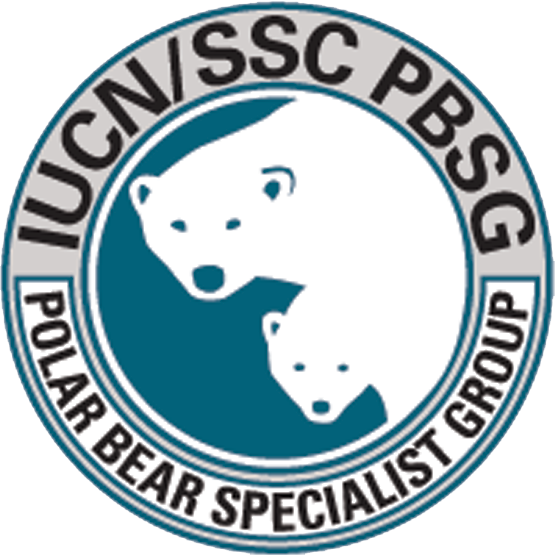Our Members
Credit: Ian Stirling
In Oslo in October 2012 the group agreed on new membership guidelines to secure its independent position in relation to the Range States, or Parties of the 1973 Agreement and to better align with the IUCN quadrennial cycle. All members, to a maximum of 35, are invited by the Chair/Co-Chairs to join the PBSG. The following are the PBSG members for the 2021-2024 IUCN quadrennium.
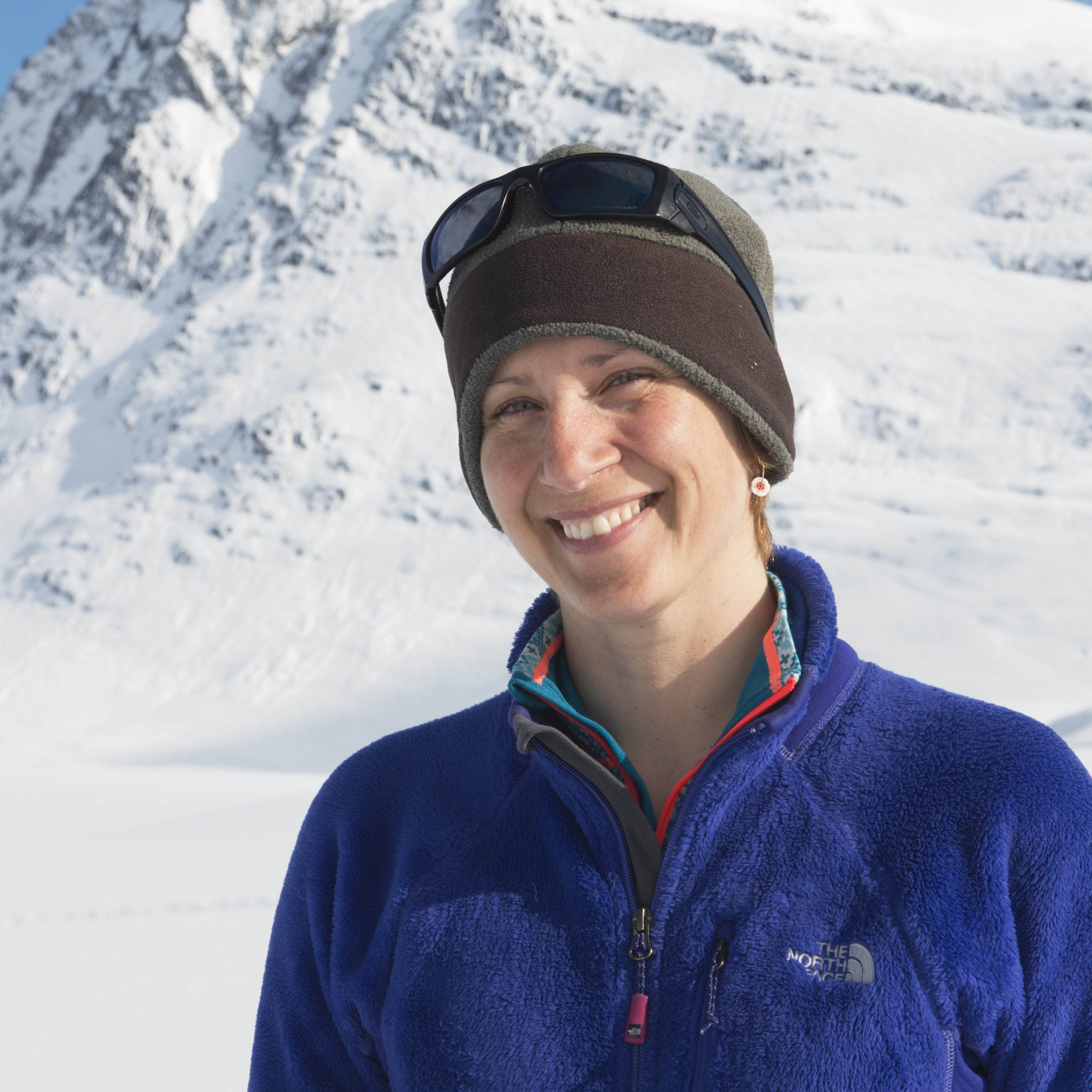
Kristin Laidre (CO-CHAIR)
Marine Mammal Ecologist, Ph.D. - University of Washington (USA)
Kristin Laidre is a Senior Principal Scientist at the Polar Science Center, Applied Physics Laboratory, University of Washington and a Professor at the School of Aquatic and Fishery Sciences. She is partially supported by the Greenland Institute of Natural Resources in Nuuk, Greenland. Her research is focused on the ecology and population dynamics of Arctic marine mammals in Greenland. She was named a Pew Marine Conservation fellow in 2017.

Nick Lunn (Co-Chair)
Research Scientist/Ecologist, Ph.D. - Retired (Canada)
Dr. Nick Lunn retired in December 2023 from Environment and Climate Change Canada where he was a Research Scientist with the Wildlife Research Division, Science & Technology Branch. He has been a member of the PBSG since 1997 and Co-Chair since 2017. He received his B.Sc. and M.Sc. in Zoology from the University of Alberta, Edmonton, Canada and undertook his Ph.D. with the British Antarctic Survey in Cambridge, UK. He began working on polar bears in 1981 and has been involved in studies in Baffin Bay, Foxe Basin, Northern Beaufort Sea, Southern Hudson Bay, and Western Hudson Bay. His primary research interests lie in polar marine ecology, with particular emphasis on marine mammals. Most recently, his research focussed on the ecology, population dynamics, and status of polar bears in relation to environmental change. In addition to his ongoing involvement on the PBSG, Dr. Lunn was a long-term member of the Canadian Polar Bear Technical Committee and the Scientific Working Group to the Canada-Greenland Joint Commission on Polar Bear.
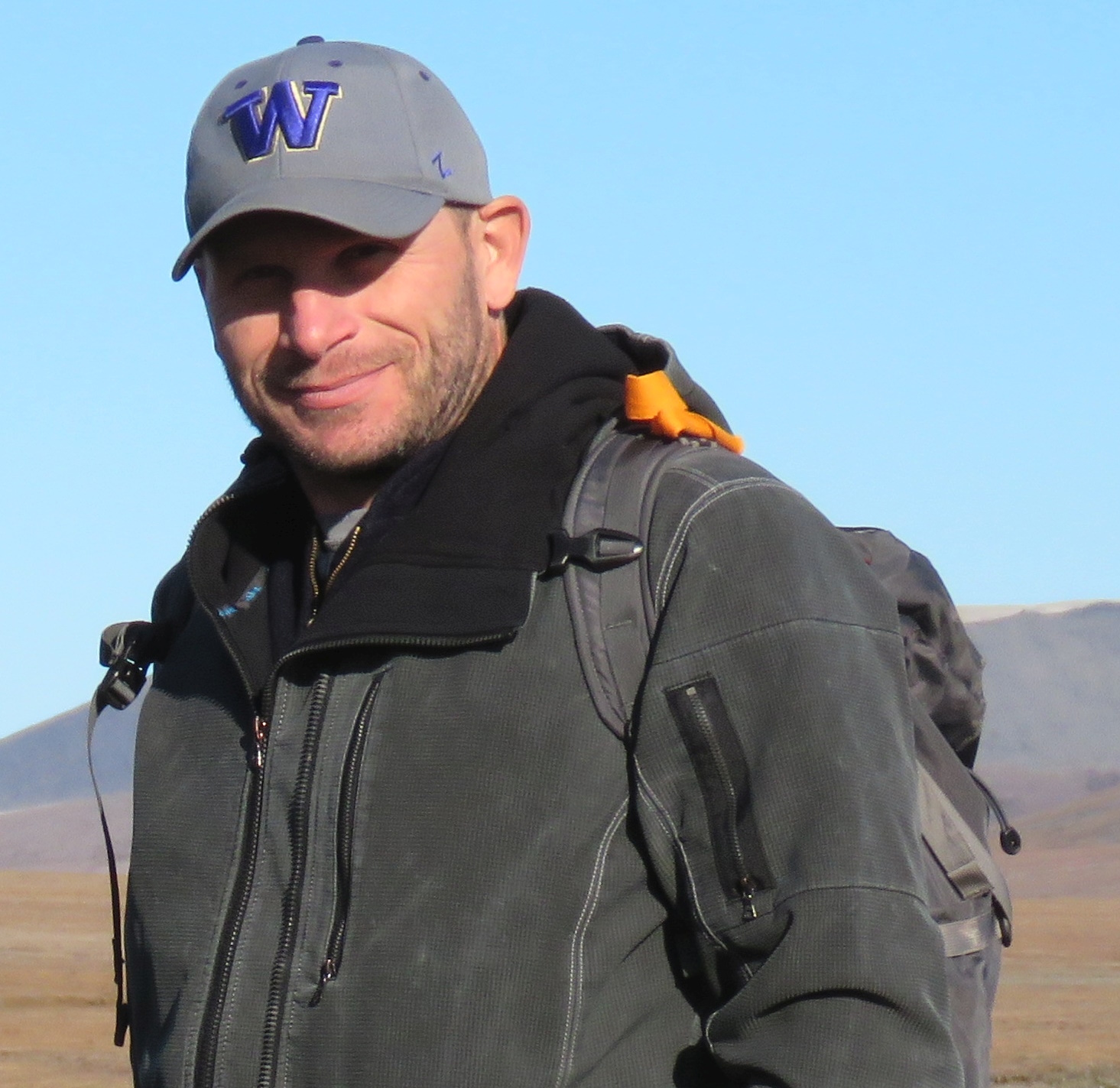
Eric Regehr (IUCN Red List Coordinator)
Principal Quantitative Ecologist, Ph.D. - University of Washington (USA)
Dr. Eric Regehr is a Principal Quantitative Ecologist at the University of Washington’s Polar Science Center. He has spent over 20 years studying the population dynamics of terrestrial and marine wildlife, with a focus on understanding the effects of climate warming and providing scientific advice on sustainable harvest. Eric has been involved in studies on 13 of the world’s 19 polar bear subpopulations. Recognizing humans as a key part of many ecosystems, he is most interested in applied research that is relevant to both animals and people.

Jon aars
Senior Researcher, Ph.D. - Norwegian Polar Institute (Norway)
Jon Aars has PhD in demography and popolation genetics of small mammals, from University of Oslo, Norway, in 1998. From 1998 to 2002, he worked as a Post Doc at University of Aberdeen, Scotland, UK, on population genetics and ecology of water voles. Aars has been employed at the Norwegian Polar Institute, leading the polar bear monitoring programme in Svalbard, Norwegian Arctic, from 2003. His main interest is population demography and ecology of mammals.
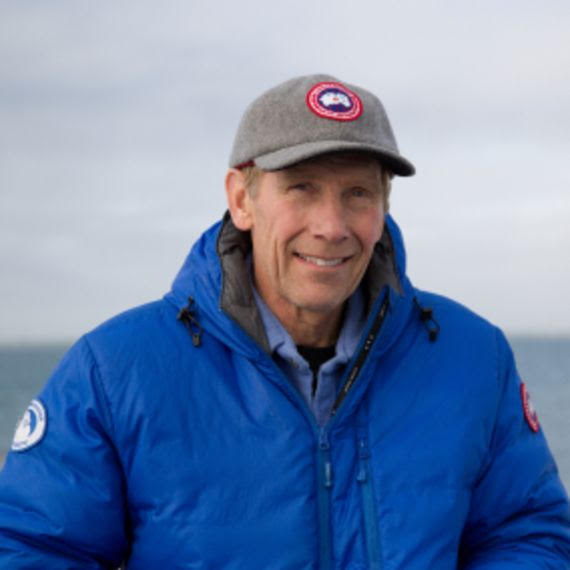
Steven Amstrup
Emeritus Research Scientist - Retired (USA)
Steven C. Amstrup received his bachelor’s degree from the University of Washington in 1972, his MSc. From the University of Idaho in 1975 and his Ph.D. from the University of Alaska Fairbanks in 1995. Amstrup was polar bear project leader for the USGS Alaska Science Center between 1980 and 2010. In 2007 Amstrup led a USGS research team in production of 9 reports that became the basis for then Secretary of Interior Dirk Kempthorne’s decision to list polar bears as a threatened species under the US Endangered Species Act. In the December 2010 issue of Nature, he and his coauthors showed there is a linear and inverse relationship between global mean temperature and sea ice extent, and that preserving polar bears requires a halt to man-caused temperature increase. Amstrup has been Chief Scientist for Polar Bears International since 2010 focusing on conservation education as well as research to inform polar bear conservation.
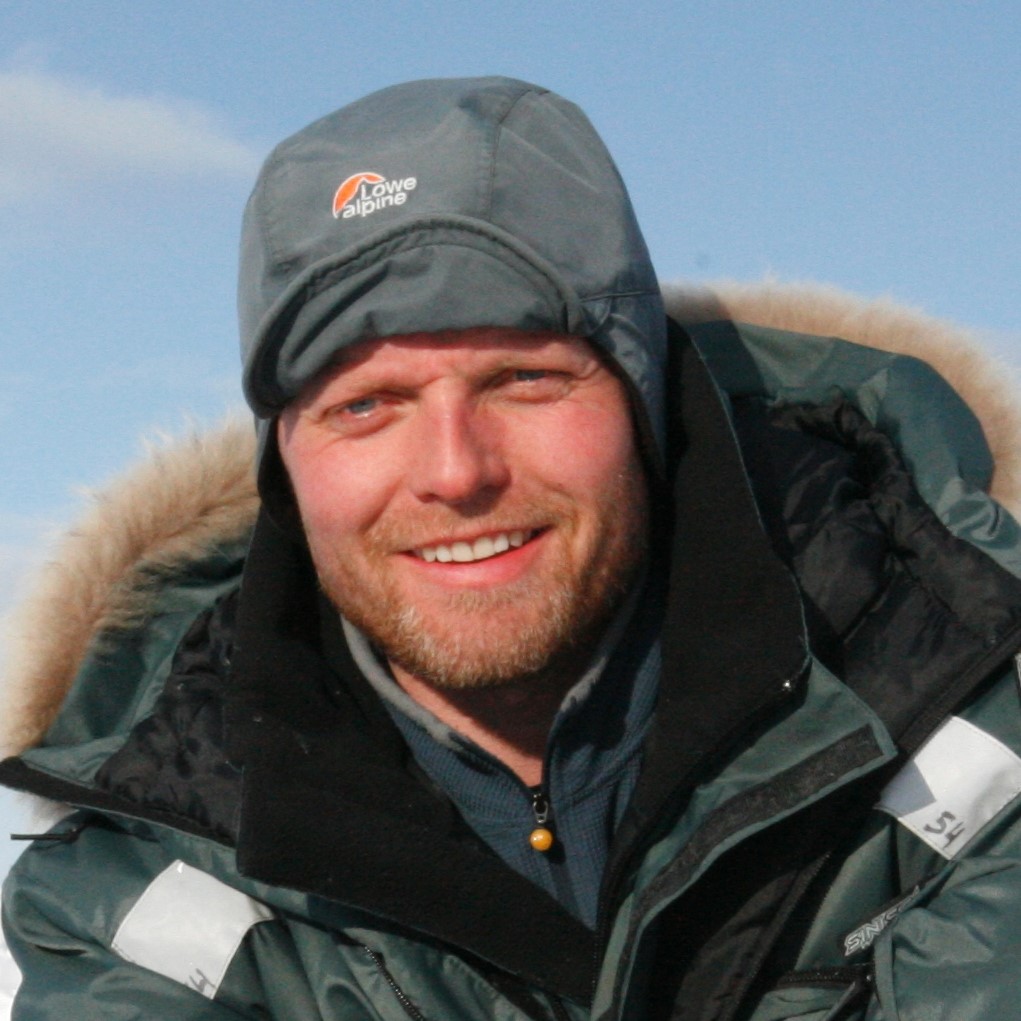
Magnus Andersen
Research Scientist, Ph.D. - Norwegian Polar Institute (Norway)
Magnus Andersen received his M.Sc. on population parameters of bearded seals (Erignathus barbatus) in Svalbard in 1998, and defended his Ph.D. thesis, on polar bear (Ursus maritimus) population biology and human impact on the population in the Barents Sea, in 2013. Dr. Andersen has been involved in Arctic marine mammal research since 1995 and has been a permanent employee with the Norwegian Polar Institute since 1999, as a research scientist in the Biodiversity section until 2022 and as a Section Leader since 2023. His area of interest is Arctic marine mammal ecology, with a focus on demography and the impact of anthropogenic activity, mainly focusing on the Svalbard area and the Barents Sea. He is a member of the Norwegain Polar Bear Council (since 2015), and the IUCN Polar Bear Specialist Group (since 2017).
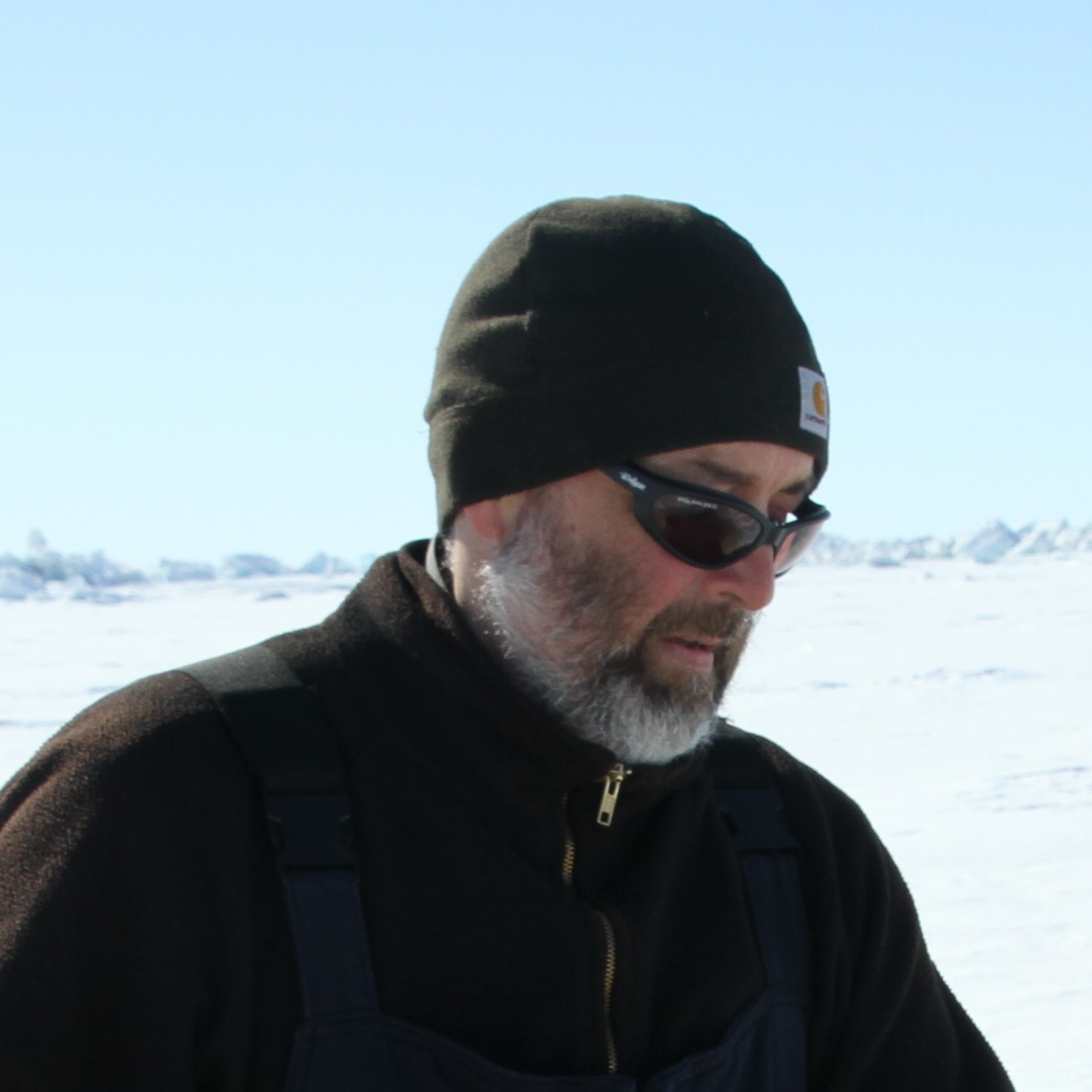
todd atwood
Research Wildlife Biologist, Ph.D. - U.S. Geological Survey (USA)
Todd Atwood is a research wildlife biologist with the U.S. Geological Survey Alaska Science Center in Anchorage, Alaska. Todd has been studying carnivore ecology for twenty years and polar bear ecology for twelve years.
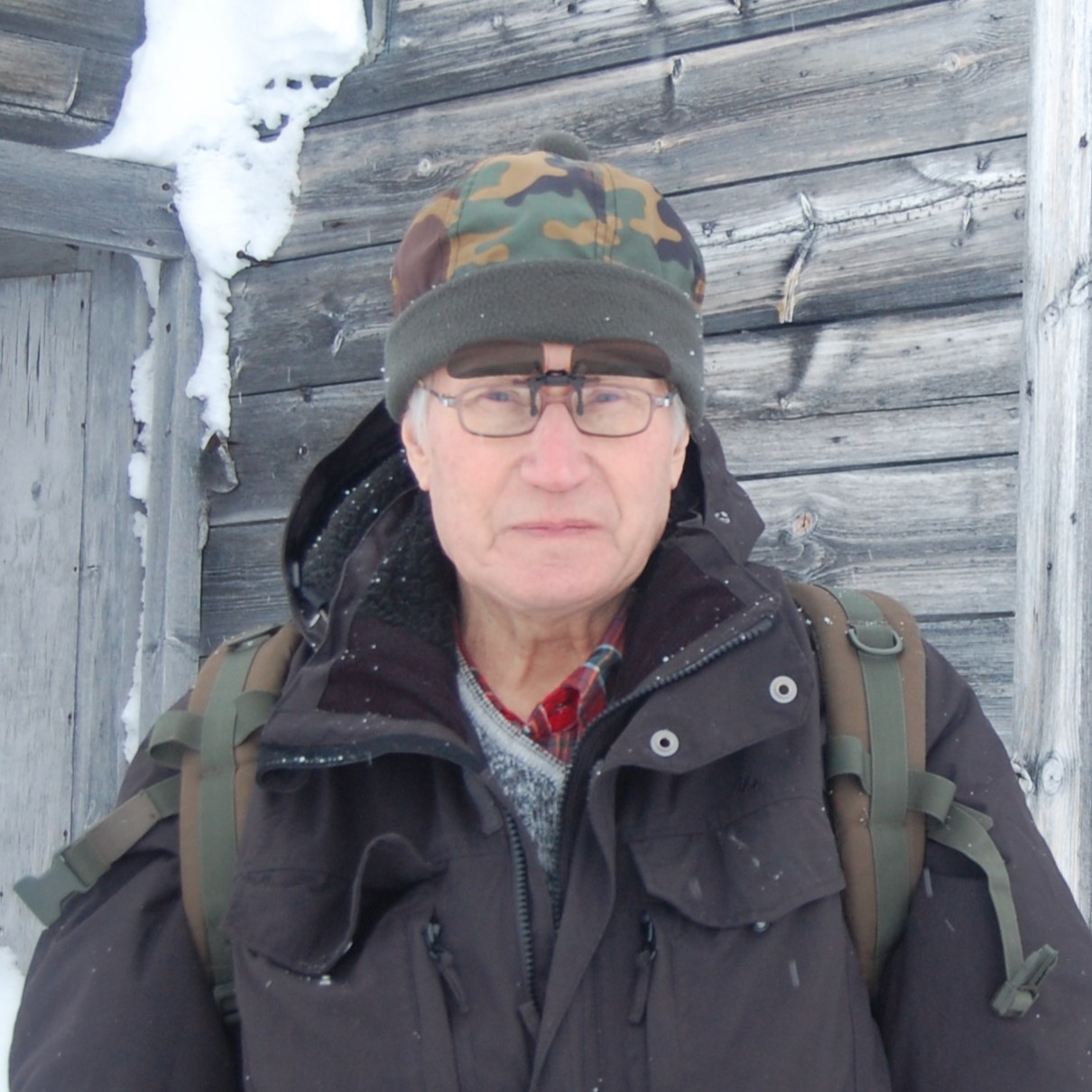
stanislav belikov
Ecologist, Ph.D. - All-Russian Research Institute for Environment Protection (Russia)
The main area of scientific activity for S. Belikov is the development of scientific and methodological foundations for the conservation of biodiversity and the sustainable use of biological resources of the Russian Arctic, the development of specially protected natural areas network, the study, conservation and restoration of rare and economically valuable species of vertebrate animals in the Arctic. In recent years, special attention has been paid to the study of the impact of climate change and anthropogenic factors on Arctic species of marine mammals and polar bears. Author or co-author of about 240 publications, including more than 90 in foreign journals. S. Belikov and his laboratory staff provide scientific, methodological, informational and analytical support for the fulfillment of Russia's international obligations concerning polar bears. S. Belikov is a member of the Polar Bear Specialist Group of IUCN, co-chair of the American-Russian Polar Bear Scientific Working Group.
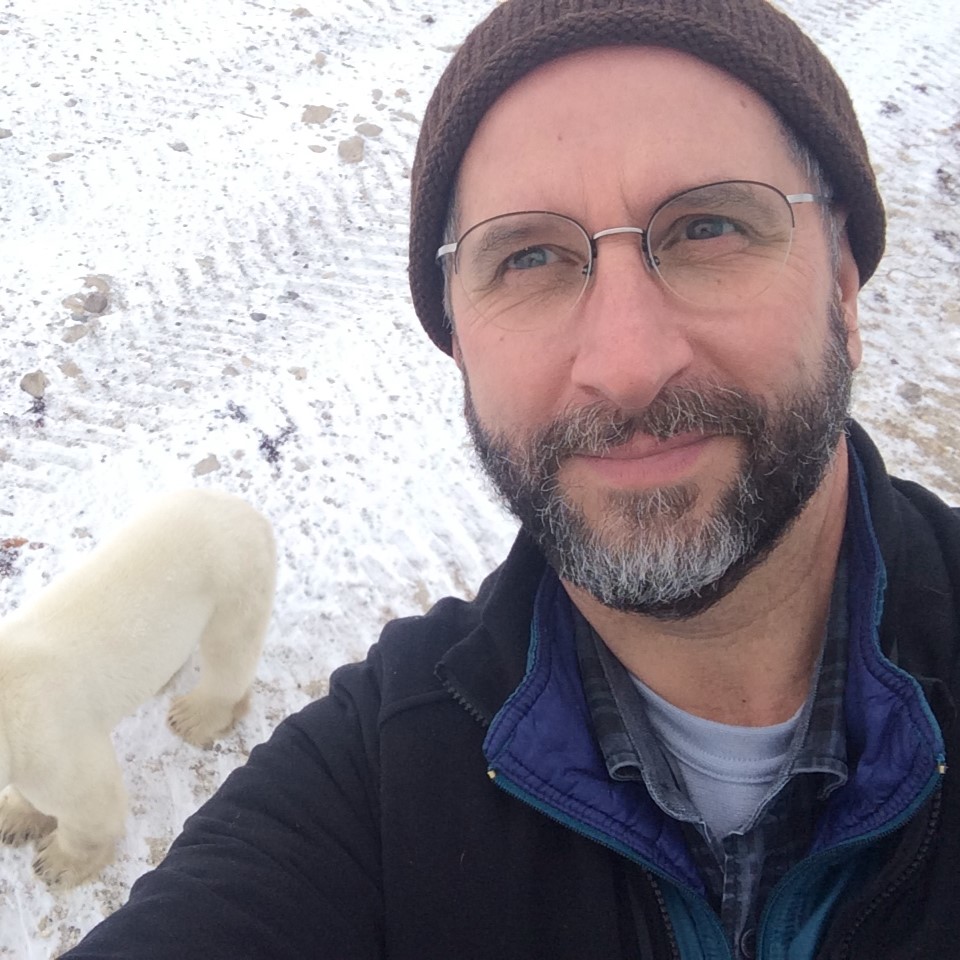
andrew derocher
Professor, Ph.D. - University of Alberta (Canada)
Andrew E. Derocher, Ph.D. has been a Professor of Biological Sciences at the University of Alberta in Edmonton, Canada since 2002. Dr. Derocher joined the University after 7 years at the Norwegian Polar Institute as a research scientist studying polar bears in Svalbard and western Russia. His research over the last 40 years has focused on the ecology and conservation of polar. His current research is focused on understanding the effects of climate change on polar bears. He has published over 200 peer-reviewed papers on bears and published the book “Polar Bears: A Complete Guide to Their Biology and Behavior” in 2012. He is the Editor-in-Chief for Ursus the journal of the International Association for Bear Research and Management. He is a past chair of the IUCN/SSC Polar Bear Specialist Group.
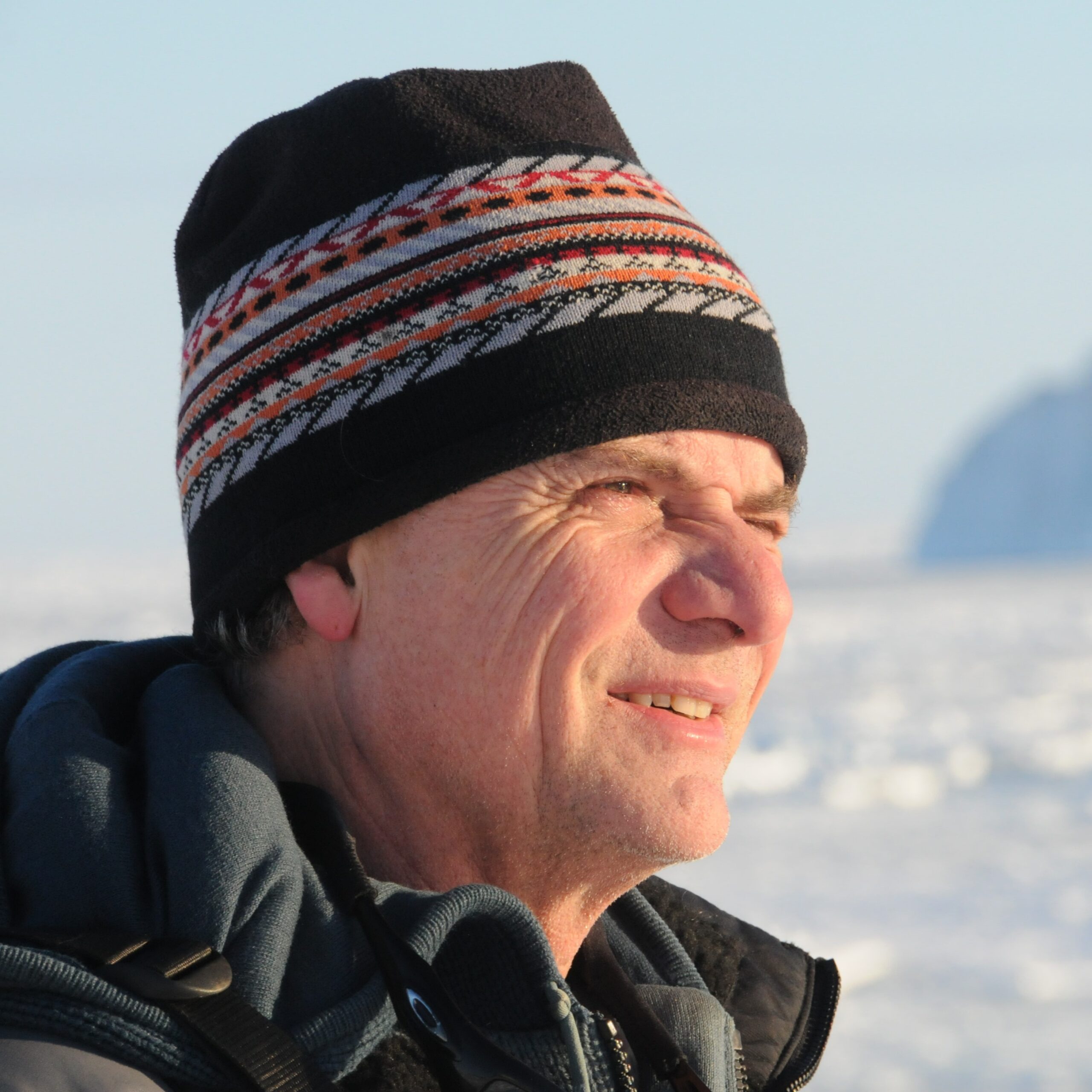
rune dietz
Research Scientist, Ph.D. - Aarhus University (Denmark)
Rune Dietz has worked more than 40 years on contaminants and marine mammals and other trophic levels mainly in the Arctic. RD has worked on contaminants and tracking of polar bear in Greenland. RD has been involved with satellite tracking of marine mammals during the last 30 years. I have been tracking more than 500 animals from 15 primary marine mammal species with satellite tags and others data loggers over the last 30 years. I have since 1996 been appointed Lead Country Expert for AMAP (Arctic Monitoring and Assessment Programme) in their International Overall Assessments as well as health effects and climate related effects from Heavy Metals, Mercury and POPs in which up to 200 scientists from the eight Arctic Countries have been involved. RD has published more than 400 publications in reviewed journals and a similar number of book contributions, popular articles and technical reports.

dave douglas
Research Wildlife Biologist, MS - U.S. Geological Survey Alaska Science Center (USA)
David Douglas works at the U.S. Geological Survey Alaska Science Center, where he has collaborated with the Center’s polar bear research program since 1986, primarily focused on the acquisition and analysis of satellite tracking data. His scientific interests fall broadly under the topic of ‘habitat dynamics’, in which he uses satellite remote sensing technologies to investigate how year-to-year variations in climate and weather affect the quality and availability of wildlife habitats, and the timing and routes of wildlife migrations. He has studied how past and present changes in sea ice extent, as well as modeled projections of future sea ice, may change the seasonal availability of habitats for polar bears and other ice-dependent marine mammals. David attended Utah State University and Washington State University where he studied wildlife biology and computer science. He joined PBSG in 2017.
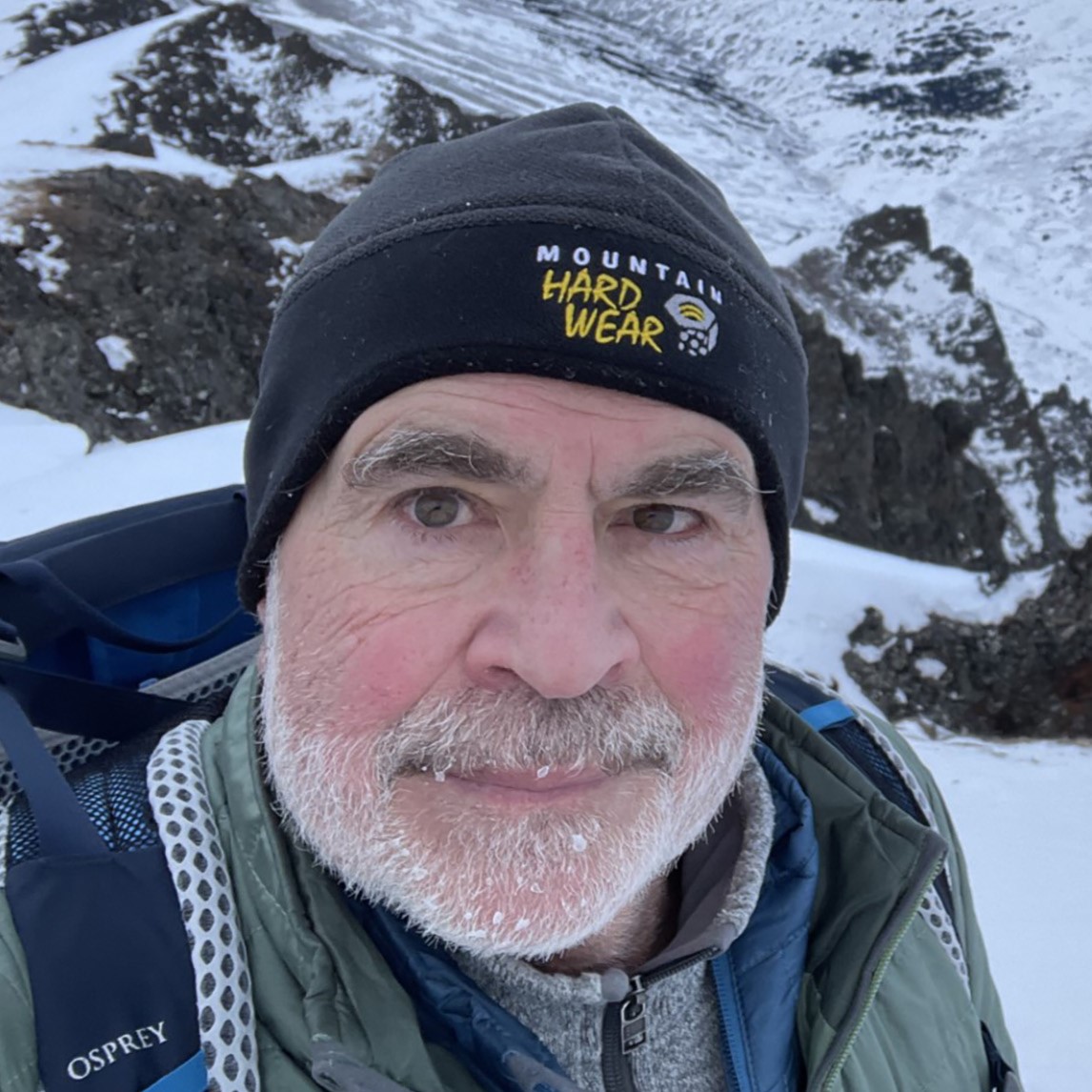
George Durner
Research Zoologist, Ph.D. - United States Geological Survey, Alaska Science Center (Retired) (USA)
Dr. Durner’s research has focused on the response of polar bears to climate warming changes in sea ice habitats, including observed and future loss of their optimal sea ice habitat, consequences of habitat loss to polar bear movements and associated energetic consequences, distribution of polar bear maternal denning and landforms that support dens, and the role of stress hormones in polar bear health. His research has contributed to informing policy decisions on polar bear conservation at international, national, and local levels.

Amalie Jessen
Head of Division, Greenland Ministry of Fisheries and Hunting
Amalie is Head of Division at the Ministry of Fisheries and Hunting, Greenland. Amalie is a member of the North Atlantic Marine Mammal Commission (NAMMCO) Council on behalf of Greenland, as well as the Joint Commission on Narwhal and Beluga (JCNB), Joint Commission on Polar Bear (JCPB) and Alternate Commissioner to International Whaling Commission (IWC). Amalie has arranged international seminars on whales and whaling, and seals and sealing. Amalie works with different regional and international agreements and attends the IWC, Joint Commissions with neighboring countries, the Convention on International Trade in Endangered Species of Wild Fauna and Flora (CITES), the IUCN General Assemblies, and IUCN Polar Bear Specialist Group, as well as other regional and international meetings on behalf of Greenland. Amalie has lead negotiations on seal skin issues related to the EU ban on seal products and Inuit exemption. She has nearly 36 years of experience in wildlife management both nationally, regionally, bilaterally, and internationally.
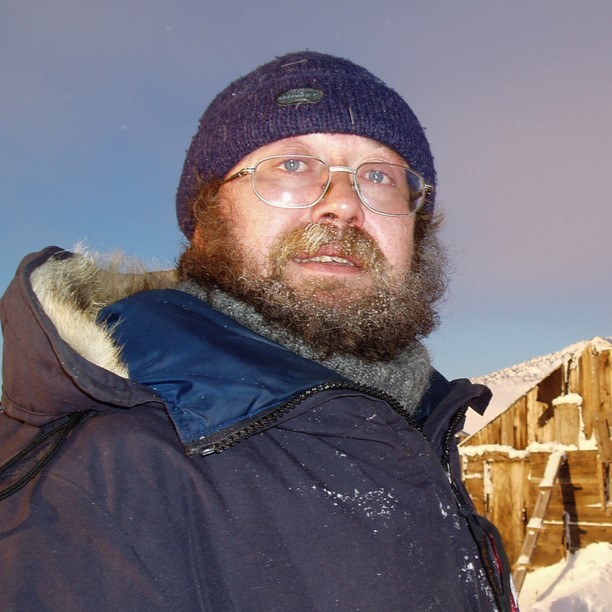
Anatoly Kochnev
Wildlife Biologist, Ph.D. - Institute of Biological Problems of the North of the Russian Academy of Sciences (Russia)
Born in 1963, October, 3rd. In 1985 graduated Irkutsk State University. Since 1983 he worked on many marine mammal research, conservation and management projects in the Chukotka and other arctic regions of Russia. For many years Dr. Kochnev worked for the Wrangel Island State Reserve and Chukotka Branch of the Pacific Research Fisheries Center on various projects for the monitoring and conservation of the Pacific walrus and polar bear, as well as traditional relationship «marine mammals/native people» in the Chukotka. The main scientific interests are ecology, population biology and behavior of polar bear and other marine mammals, included changes related to polar ice reduction, as well as traditional knowledge and social role of polar bear in subsistence life and culture of Natives in Chukotka. In 2005 participated in 14th Working Group Meeting of the PBSG as invited specialist. In 2013 became a member of PBSG appointed by Chair.

Péter Molnár
Associate Professor, Ph.D. - University of Toronto Scarborough (Canada)
Péter Molnár has been a professor in the Department of Biological Sciences at the University of Toronto Scarborough since 2015, where he leads the Laboratory of Quantitative Global Change Ecology. His research focuses on the development of mathematical and statistical models for understanding the impacts of climate change on wildlife. Dr. Molnár has worked on polar bears since 2004, including on aspects of their mating dynamics, disease dynamics, population dynamics, and the survival and reproduction of polar bears under sea ice loss. He has been a member of the IUCN Polar Bear Specialist Group since 2016.
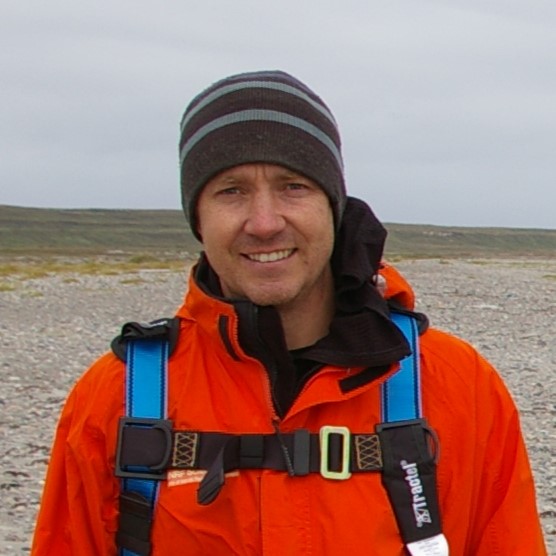
JOE NORTHRUP
Research Scientist, Ph.D. - Ontario Ministry of Natural Resources and Forestry (Canada)
Joe Northrup's research focuses on the behavior and population dynamics of large mammals, including polar bears. He works primarily on the Southern Hudson Bay polar bear subpopulation, where he works collaboratively with First Nations, governments, NGOs and academic institutions to understand how this population is changing with declining sea ice and how this is affecting bears and people in this area.
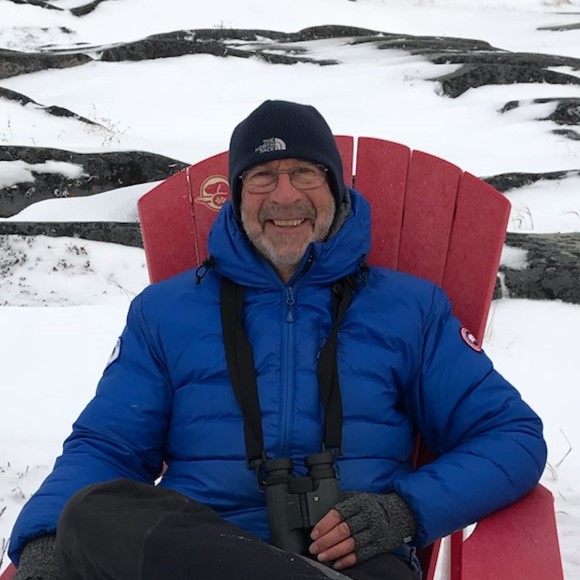
MARTYN OBBARD
Emeritus Research Scientist and Ecologist, Ph.D. - Retired (Canada)
Martyn Obbard is an Emeritus Research Scientist with the Ontario Ministry of Natural Resources and Forestry, and adjunct professor in the Environmental and Life Sciences Graduate Program at Trent University (Peterborough, Ontario). He retired in 2016 after a 32-yr career with the Ministry, including 28 in the Wildlife Research Section studying polar bears and black bears in Ontario. He has been a member of the Polar Bear Specialist Group since 2000 and attended his first PBSG meeting in 2001 in Nuuk, Greenland. He was a long-time member and former Chair of the Canadian Federal/Provincial/Territorial Polar Bear Technical Committee. In retirement, Martyn remains active as a member of the Polar Bear Range States Conflict Working Group. He leads small-group tours to Churchill, Manitoba for polar bear viewing and has participated in several expedition cruises to the Northwest Passage in the Canadian Arctic and to the Svalbard region in the European Arctic.
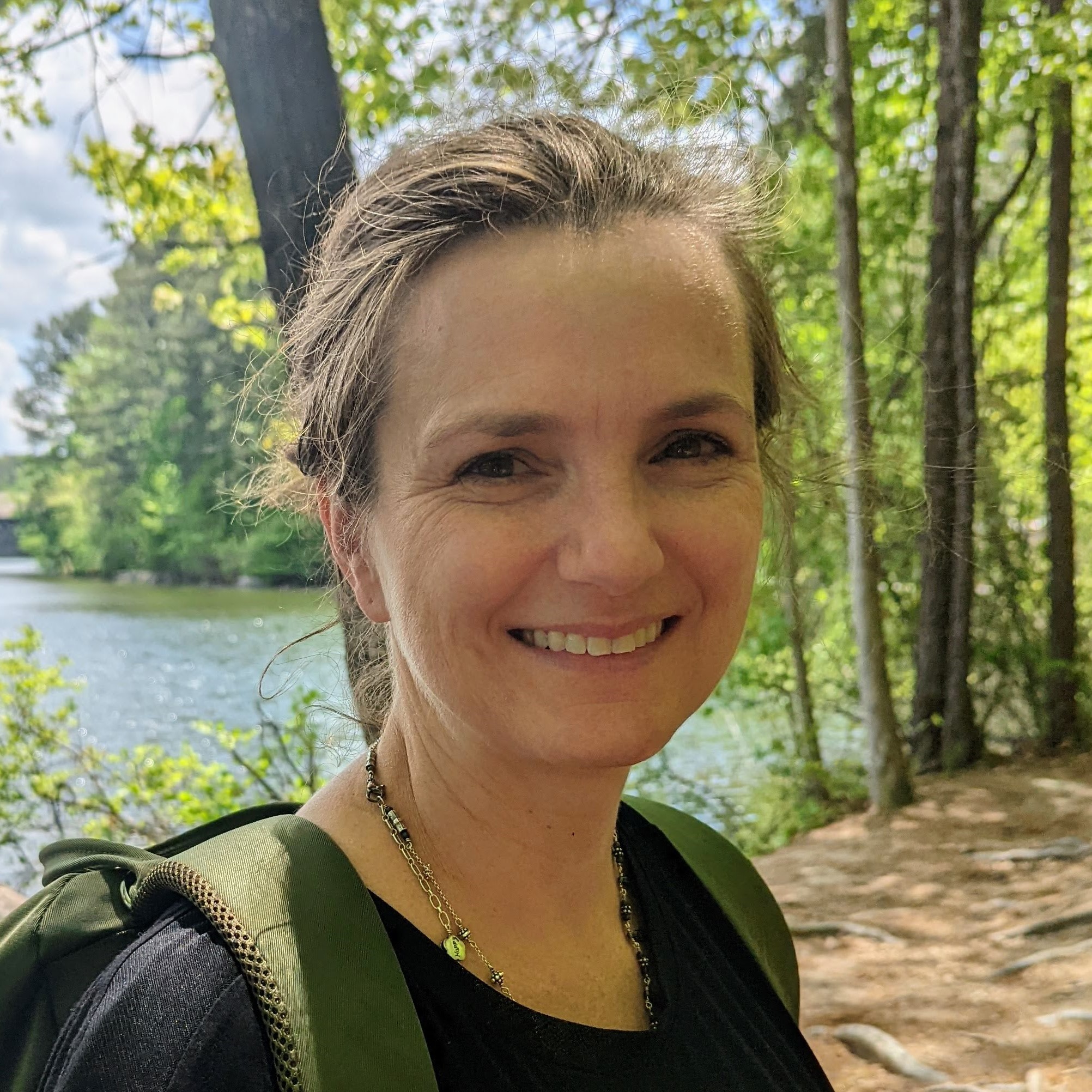
ELIZABETH PEACOCK
Emergency Medicine Physician and Polar Bear Biologist, Ph.D., MD, Dip. Mountain Medicine - Emergency Medicine of Idaho (USA)
Lily Peacock served as the Government of Nunavut's (Canada) territorial polar bear biologist leading efforts to manage Nunavut's 12 polar bear populations with local Inuit Hunter and Trapper Organizations, and with the international partners. In Nunavut, she led research efforts primarily on the polar bears in Davis Strait and Foxe Basin. She then worked as a polar bear biologist for the US Geological Survey, leading research efforts in the Southern Beaufort Sea. Her research has involved population dynamics, harvest management, circumpolar genetics and conservation. She has collaborated with others in Inuit Knowledge, toxicology, foraging ecology and habitat ecology. She has led efforts to broaden research techniques including in biopsy darting, genetic mark recapture, and hair snagging and mark-recapture-distance sampling. She now works as an Emergence Medicine physician in Boise, Idaho and continues to publish in wildlife biology.
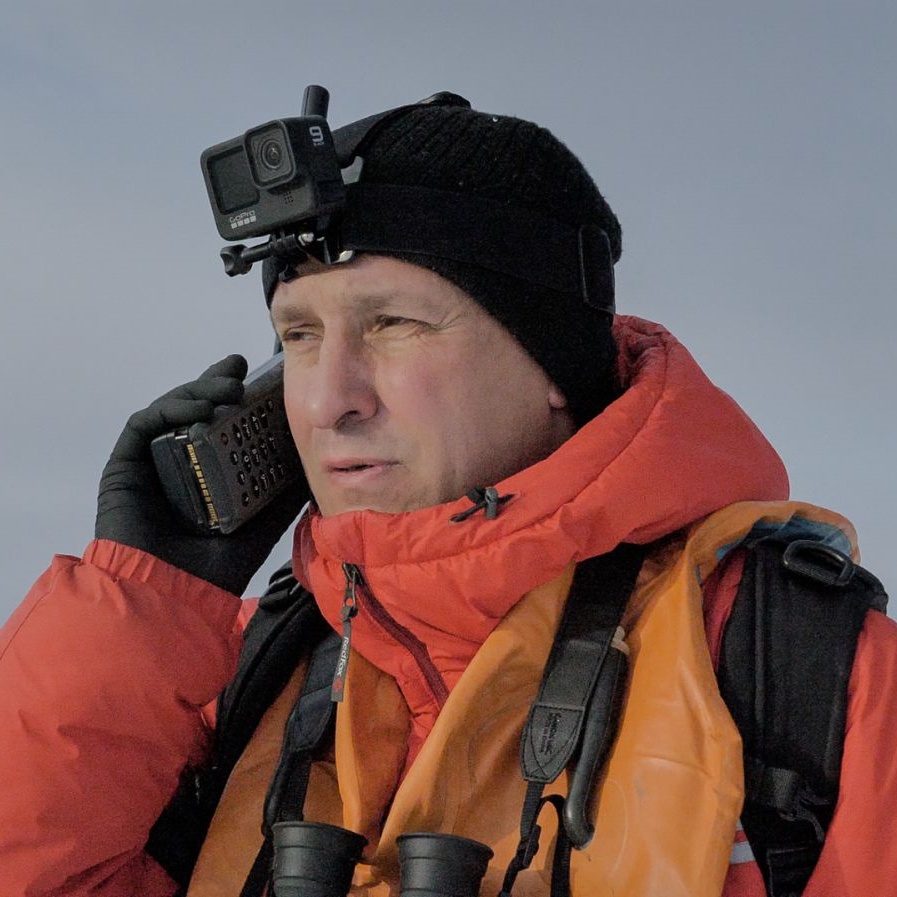
NIKITA PLATONOV
Senior Researcher, Ph.D. - A.N.Severtsov Institute of Ecology and Evolution of Russian Academy of Sciences (Russia)
Nikita Platonov earned a M.S. in applied mathematics from National Research Nuclear University (1998) and Ph. D. in aerospace methods of the Earth exploration from Moscow State University of Geodesy and Cartography (2002). He has been employed in Severtsov Institute to study the Arctic sea ice using active and passive microwave satellite data for estimating parameters of marine mammals habitat since 1996. He has been involved in polar bear researches in the Russian Arctic as a data analyst since 2010. He was invited to the 17th Intersessional Working Group Meeting of the PBSG in 2014 as an invited specialist and has been a member of the IUCN Polar Bear Specialist Group since 2016.
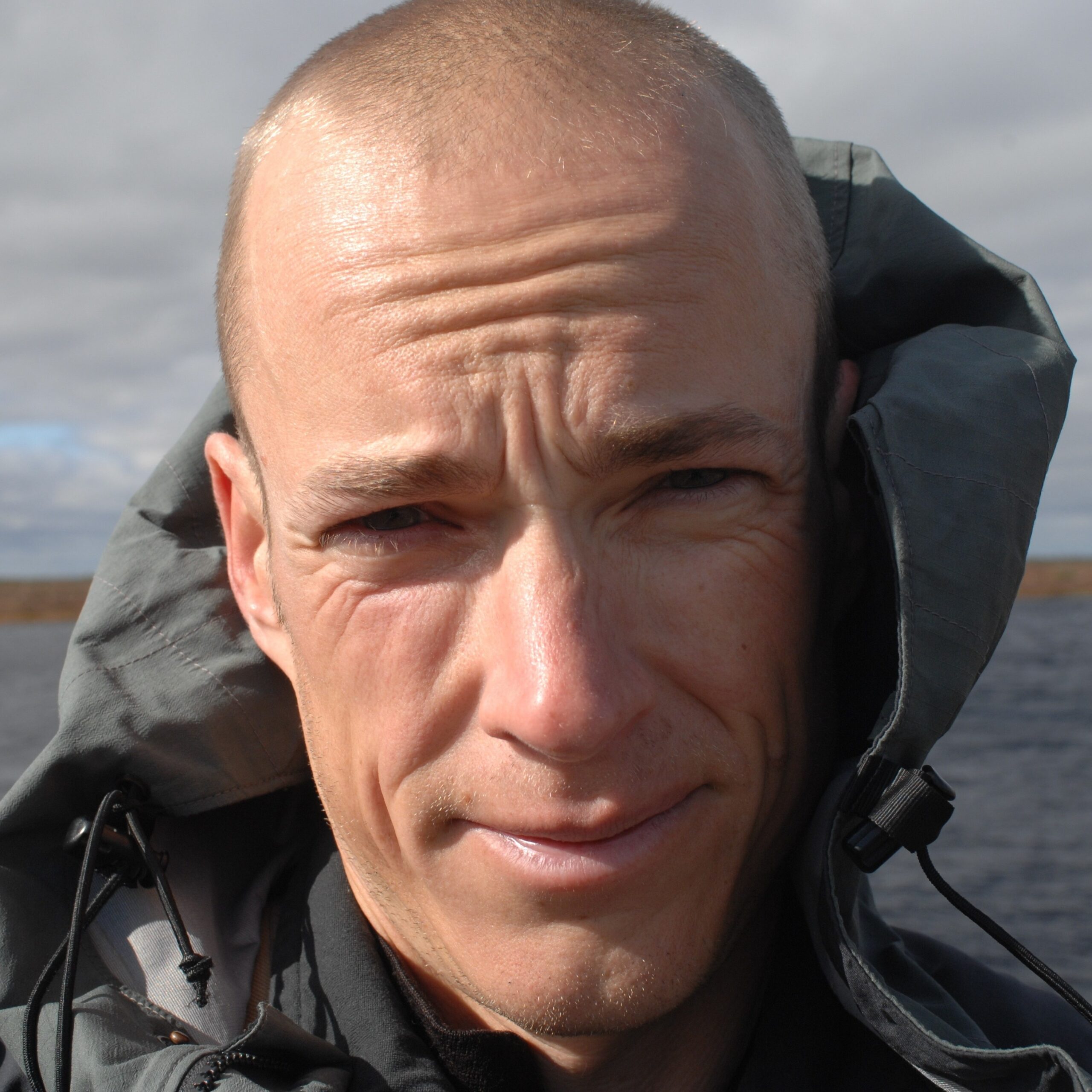
EVAN RICHARDSON
Research Scientist, Ph.D. - Environment and Climate Change Canada (Canada)
Dr. Evan Richardson is a polar bear research scientist in the Wildlife Research Division of Environment and Climate Change Canada’s (ECCC) Science and Technology Branch. He first started working on polar bears in 2001 as a graduate student at the University of Alberta where he studied polar bear maternity denning habitat in Churchill, Manitoba. Since then, Dr. Richardson has been involved in polar bear research across the Arctic from the Chukchi Sea to Baffin Bay working with government agencies, indigenous groups and non-profits to conserve and protect polar bears. Dr. Richardson’s research interests are broad and include understanding the evolutionary ecology of polar bears, their mating systems, population genetics, foraging ecology, habitat selection and the influence of various stressors (e.g. contaminants, climate, pathogens) on polar bear populations. Dr. Richardson is also an adjunct professor in the Department of Biological Sciences at the University of Manitoba.
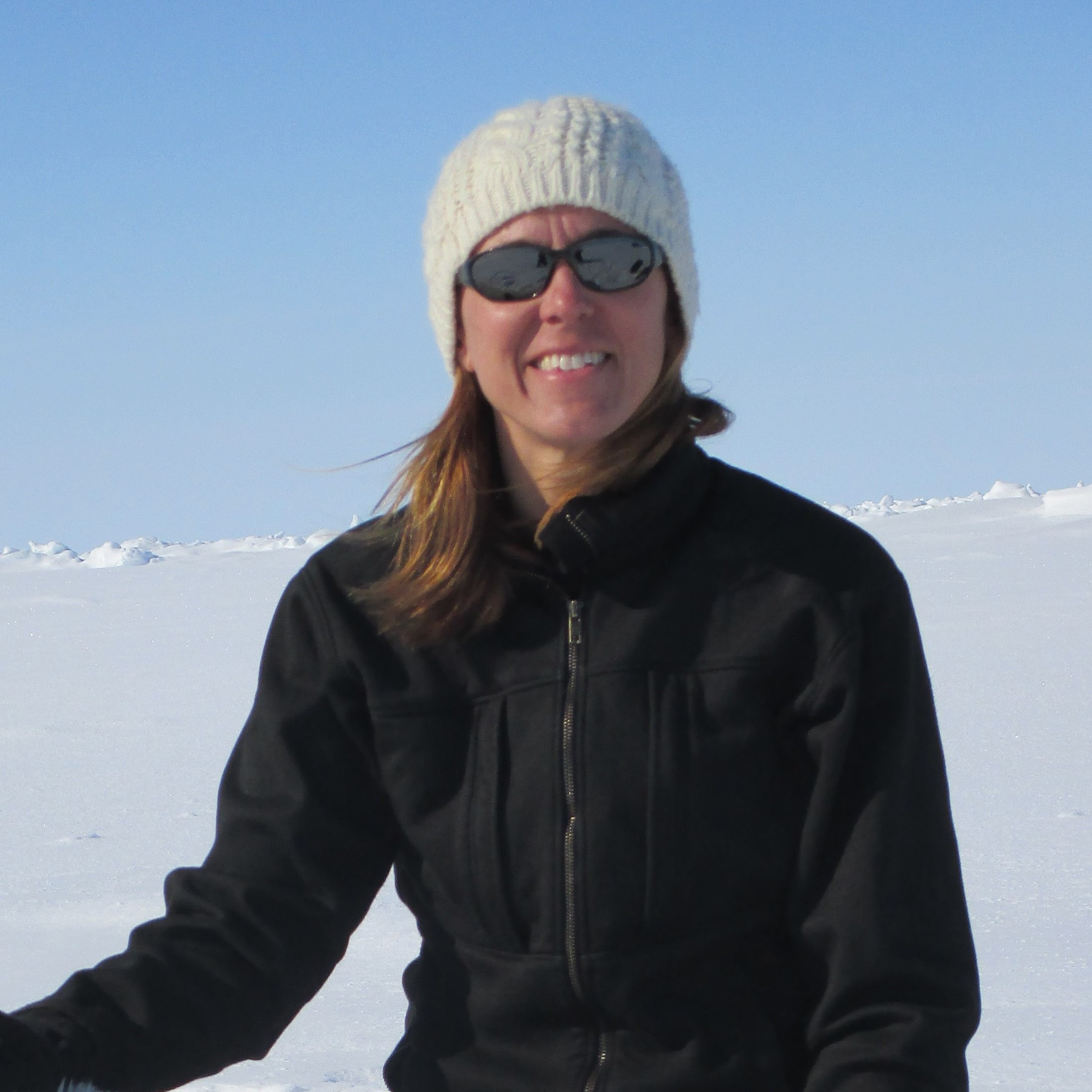
KARYN RODE
Research Wildlife Biologist, Ph.D. - U.S. Geological Survey (USA)
Dr. Karyn Rode is a Research Wildlife Biologist with the U.S. Geological Survey's Alaska Science Center in Anchorage, Alaska. She has worked both as a research scientist and in polar bear management via a previous position with the US Fish and Wildlife Service polar bear program. She conducts applied research focused on understanding polar bear ecology and behavior, as it pertains to habitat use, diet, body condition, reproduction and survival. She has studied polar bears and other bear species since 1997 and been a member of the PBSG since 2008.
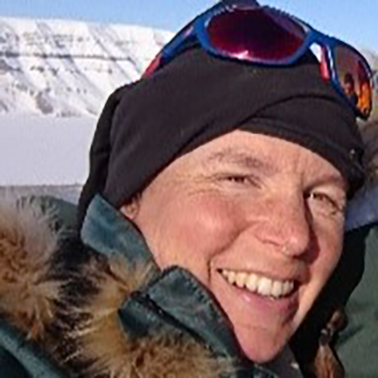
Heli Routti
Senior Scientist, Ph.D. - Norwegian Polar Institute (Norway)
I am a senior scientist at the Norwegian Polar Institute, Tromsø, Norway. My core research focuses on levels and effects of pollutants in polar bears and other Arctic mammals. During recent years, my research has contributed to understanding on how ecological and climate-driven factors affect time- and geographical trends of pollutants in Arctic ecosystems, as well as, how multiple stressors including pollutants and climate change affect the health of polar bears. To gain knowledge about adverse effects of pollutants, I have been working on various methods including correlative field approaches and molecular in vitro techniques. I also contribute to several processes in translating science to policy. I obtained my M.Sc. at the University of Helsinki and Ph.D. (2009) at the University of Turku, Finland, both in animal physiology.

TOM SMITH
Wildlife Research Scientist, Ph.D. - Brigham Young University (USA)
Dr. Tom S. Smith is a Professor of Wildlife Sciences at Brigham Young University, Provo, Utah. Over his career he has worked for the US Forest Service, National Park Service, US Geological Survey and taught at BYU for the past 16 years. His research topics center on human-wildlife conflict and he has conducted studies of those interactions with bighorn, bobcats, and four species of bears (sloth, black, brown, and polar). Tom has studied human-bear interactions for the past 21 years with research in Alaska, Utah, Canada and India. A thread that weaves throughout all his work is the promotion of human safety and bear conservation. Tom serves as a scientific advisor to Polar Bears International, Wildlife SOS-India, and the international working group for polar bear conflict resolution.
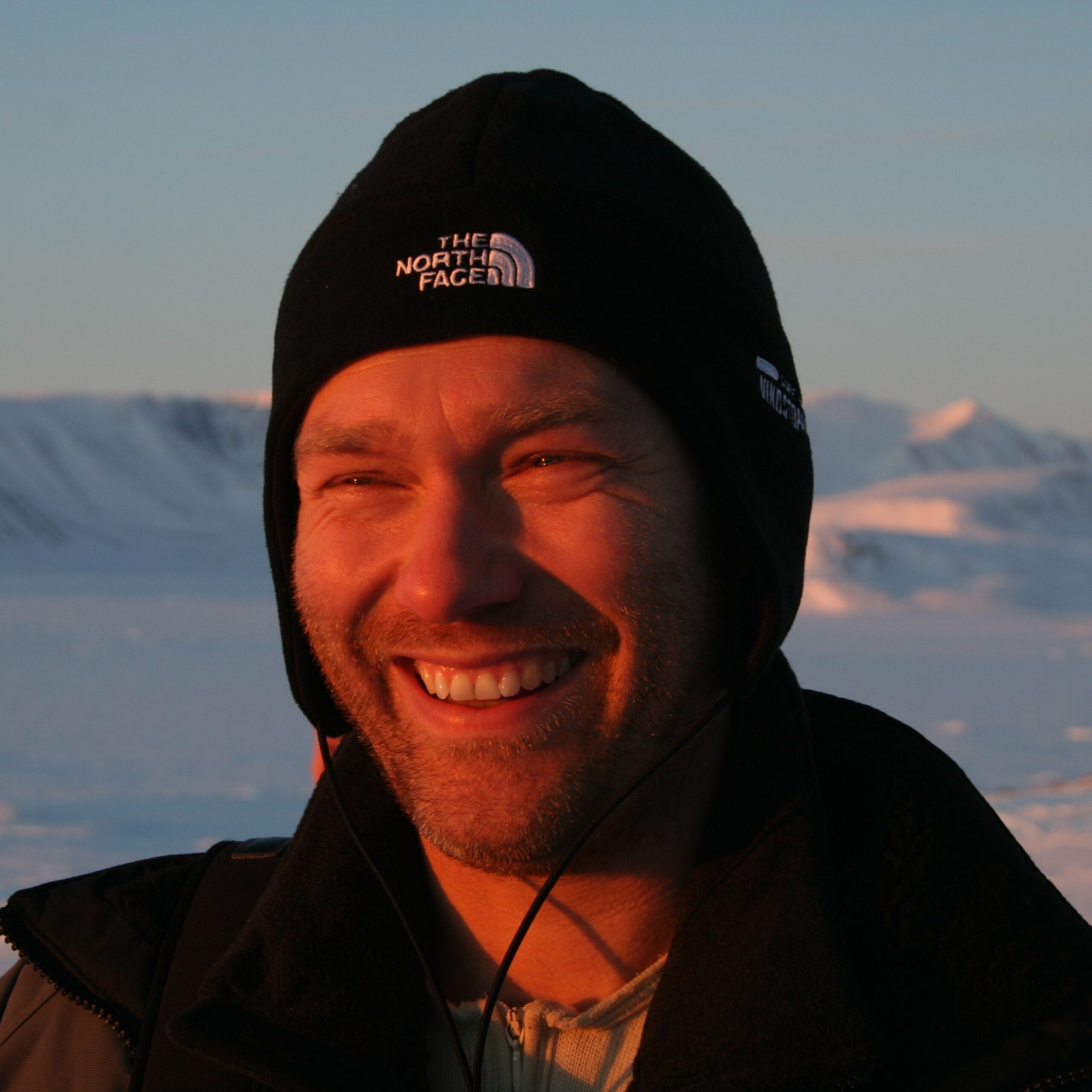
CHRISTIAN SONNE
Researcher - Aarhus University (Demark)
Professor Sonne’s background as a veterinarian along with his wide and dedicated interests within the broad field of Environmental Sciences has enabled him to become one of the international leading scientists and authorities within Arctic Wildlife Toxicology. Professor Sonne has a unique ability of collaborating with scientists from many fields within Environmental Sciences and in that way, he has been able to produce novel and cutting-edge basic research within Arctic wildlife toxicology, research that also have very high applied and societal value. His research has contributed significantly to identify the presence of toxic man-made chemicals in Arctic biota, and to identify the harmful effects of these on Arctic wildlife, ranging from effects on the individual (organismal) level to the population and ecosystem levels. His research has also contributed in the understanding of how indigenous people and communities in the North are affected by man-made.
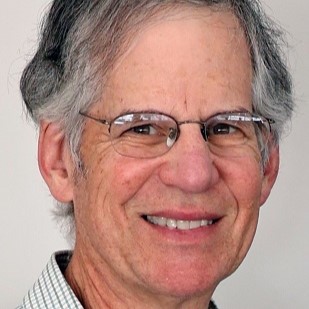
HARRY STERN
Mathematician, MS - Polar Science Center (USA)
Harry L. Stern studies Arctic sea ice using satellite data. Current interests include the changing sea-ice habitat of polar bears and the history of Arctic exploration. He joined the PBSG in 2017.

Gregory Thiemann
Associate Professor, MSc, Ph.D. - York University (Canada)
Gregory W. Thiemann is an Associate Professor in the Faculty of Environmental and Urban Change and the Graduate Program in Biology at York University. He has studied the ecology of polar bears, seals and Arctic marine food webs since 2001. His research focuses on trophic interactions, foraging ecology, and the use of biochemical markers to investigate predator diets. Dr. Thiemann's recent research has examined polar bear movement and habitat use and how knowledge co-production can produce strategies to mitigate human-polar bear conflict. He has been a member of the IUCN Polar Bear Specialist Group since 2008.
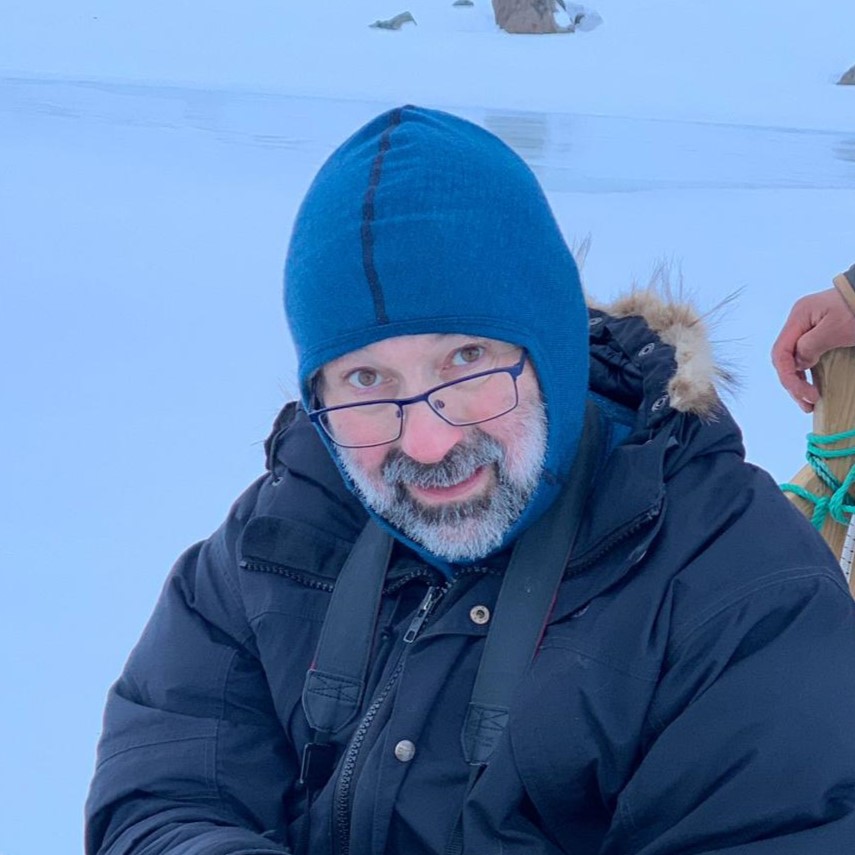
FERNANDO UGARTE
Biologist, MSc - Greenland Institute of Natural Resources (Greenland)
Head of Department of Birds and Mammals at the Greenland Institute of Natural Resources (GINR), which is the center for biological research in Greenland, and its primary objective is to provide the Government with scientific advice for the sustainable use of the living resources, and for safeguarding the environment and biological diversity. His team carries out research and monitoring of Greenland's birds and mammals, including polar bears. He is member of the Scientific Committee of the North Atlantic Marine Mammal Commission, the IUCN Polar Bear Specialist Group and the steering group of the Arctic Council’s CAFF/Circumpolar Biodiversity Monitoring Program – Marine, where he is also member of the Marine Mammal Expert Network. He is also an ex officio member of the Canadian Polar Bear Technical Committee.

DAG VONGRAVEN
Senior Advisor, MSc - Norwegian Polar Institute (Norway)
M.Sc. from University of Trondheim 1988. Have studied free-ranging killer whales off the Norwegian coast since 1989. Employed by the Norwegian Polar Institute in 1997, with responsibilities centering on wildlife management in Norwegian Arctic, with special focus on marine species, polar bears included. Work responsibilities at present also includes e.g., Arctic Council issues, ocean management and monitoring methods. Invited specialist to the PBSG meeting in Nuuk in 2001, and an ordinary member from 2005. Volunteered to make the first PBSG website in 2002, and managed this site until 2021. Interim co-chair from 2010, official co-chair from 2011, and acting chair from 2012, when Erik Born retired. Re-elected as Chair for the IUCN quadrennium running 2013-2016, and again as co-chair in Anchorage for 2016-2020 together with Nick Lunn. Retired as a chair in 2021. Published peer-reviewed papers on e.g., polar bears and killer whales. Currently working on a PhD on polar bears and humans.
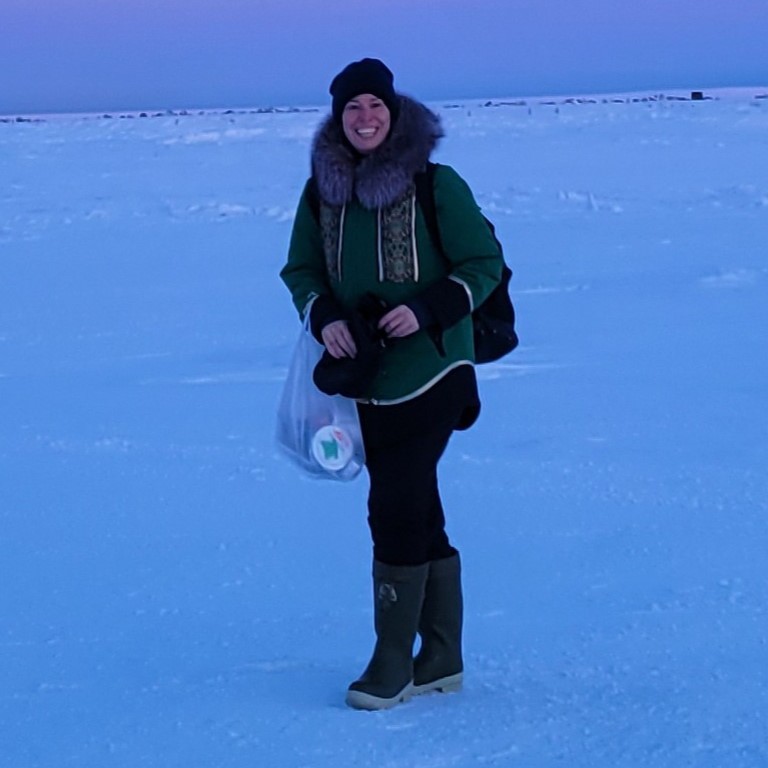
JASMINE WARE
Qualification - Affiliation (Country)
Jasmine received her Ph.D. in from Washington State University, M.S. from the University of Kentucky and a B.S. degree from the University of Tennessee. She completed her post-doctoral training with the United States Geological Survey and WSU. Dr. Ware's work has focused on a variety of ecological and basic science questions spanning multiple polar bear subpopulations in North America. Much of her work revolved around the management and monitoring of Canada's polar bear subpopulations as polar bear biologist in Nunavut, Canada, with emphasis on co-management, sustainable harvest policy and management, and collaborative research.
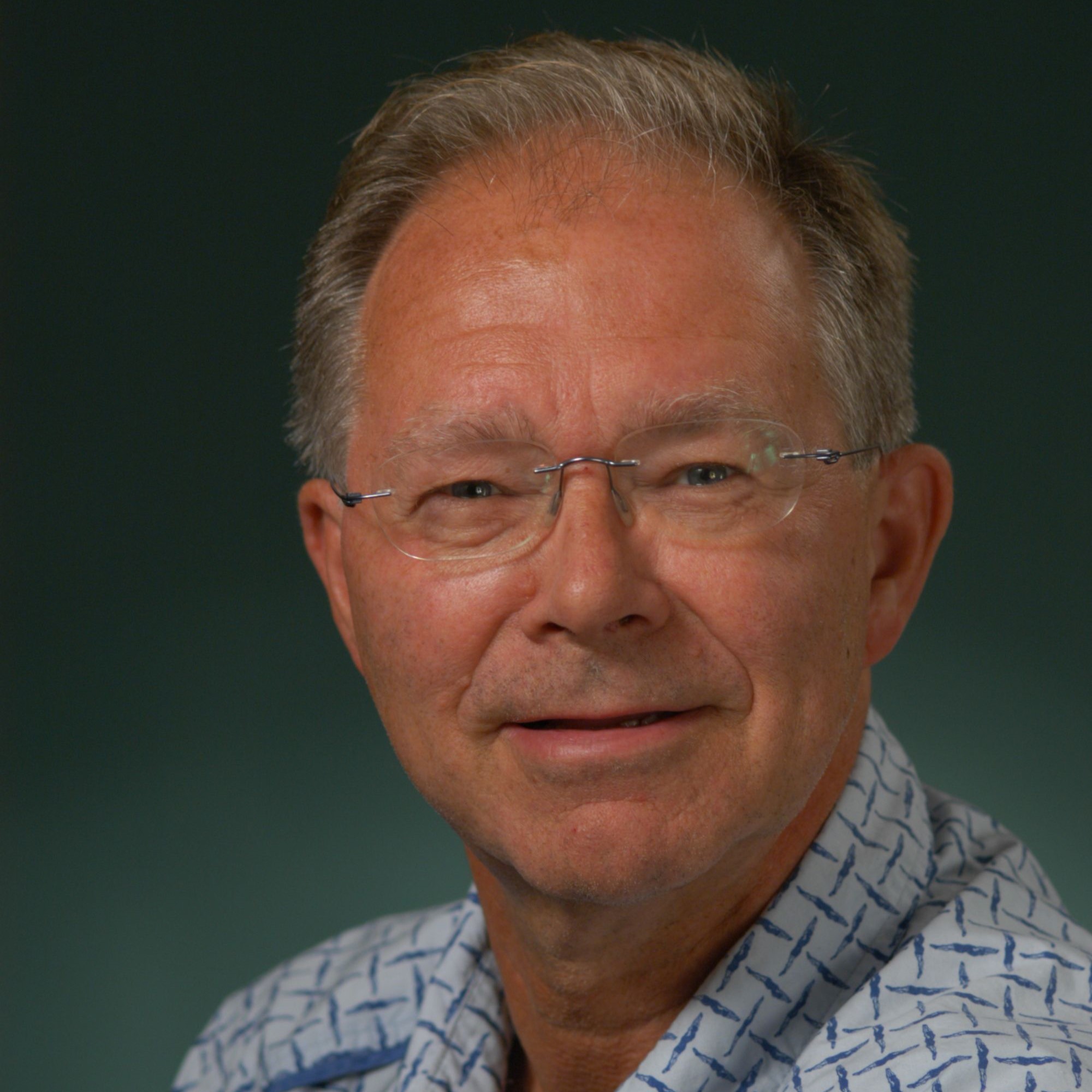
Øystein Wiig
Professor of Mammalogy, Ph.D. - University of Oslo (Norway)
Øystein Wig is a professor emeritus in mammalogy at the Natural History Museum, University of Oslo. He worked as a seal researcher at the Institute of Marine Research, Bergen, 1984 – 1988 and was thereafter appointed as the polar bear researcher at the Norwegian Polar Institute, Oslo, in 1988. In 1993 he started as a curator of mammals at the Natural History Museum, University of Oslo. He received his Dr. Philos. at the University of Bergen in 1994 and was appointed as a professor in Mammalogy at the University of Oslo in 1996. His research has primarily been related to Arctic marine mammals, particularly polar bears, walruses, and bowhead whales in Greenland, Svalbard, and the western Russian Arctic. Øystein has been a member of the PBSG since 1998 and was Chairman of the group 1993 -1997. He was the IUCN Red List Authority Focal Point for Polar Bear 2005 – 2016. He was a member of the Canada-Greenland Joint Commission on Polar Bears – Science Working Group 2010 – 2018.

Ryan Wilson
Biologist, Ph.D. - United States Fish and Wildlife Service (USA)
Ryan has worked on polar bears with the U.S. Fish and Wildlife Service since 2013. His research focusses on understanding the spatial and movement ecology of polar bears and is typically conducted to inform emerging management and conservation issues. He also develops tools for managers to better understand potential impacts of human activities on polar bear ecology and techniques that can be used to minimize disturbance to bears. He has been a member of the Scientific Working Group of the U.S.-Russia Bilateral Polar Bear Commission since 2014, and the U.S. co-chair of the working group since 2018. He earned a Ph.D. in Wildlife Biology from Utah State University, a M.S. in Natural Resources from the University of Arizona, and B.S. degrees in Wildlife Biology and Statistics from the University of Alaska Fairbanks. He has been a member of the PBSG since 2022.
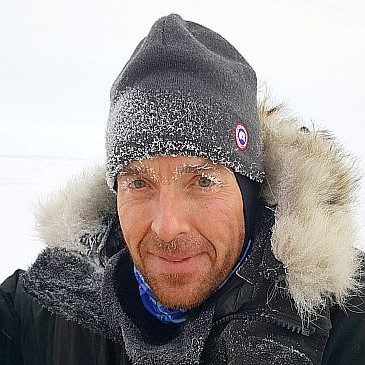
Geoff York
Senior Director of Conservation, MSc - Polar Bears International (USA)
Geoff York is Senior Director of Conservation at PBI. He has 30 years of Arctic field experience, including 24 years focused solely on polar bear conservation and research. Prior to joining PBI, Geoff was the Arctic Species and Polar Bear Lead for WWF’s Global Arctic Program. While at WWF, Geoff immersed himself in international policy issues and was fortunate to work on field projects in Canada, Norway, Russia, and Alaska. Prior to that, he worked as a biologist and program manager for the U.S. Geological Survey's Polar Bear Project, the leading polar bear research team in the U.S., headquartered in Anchorage, Alaska. Since joining PBI, Geoff has continued his interest in field-based work across the Arctic- including work in most polar bear Range States. He is a member of the Polar Bear Specialist Group of the International Union for the Conservation of Nature, the U.S. Polar Bear Recovery Team, a past chair and active member of the Polar Bear Range States Conflict Working Group.
